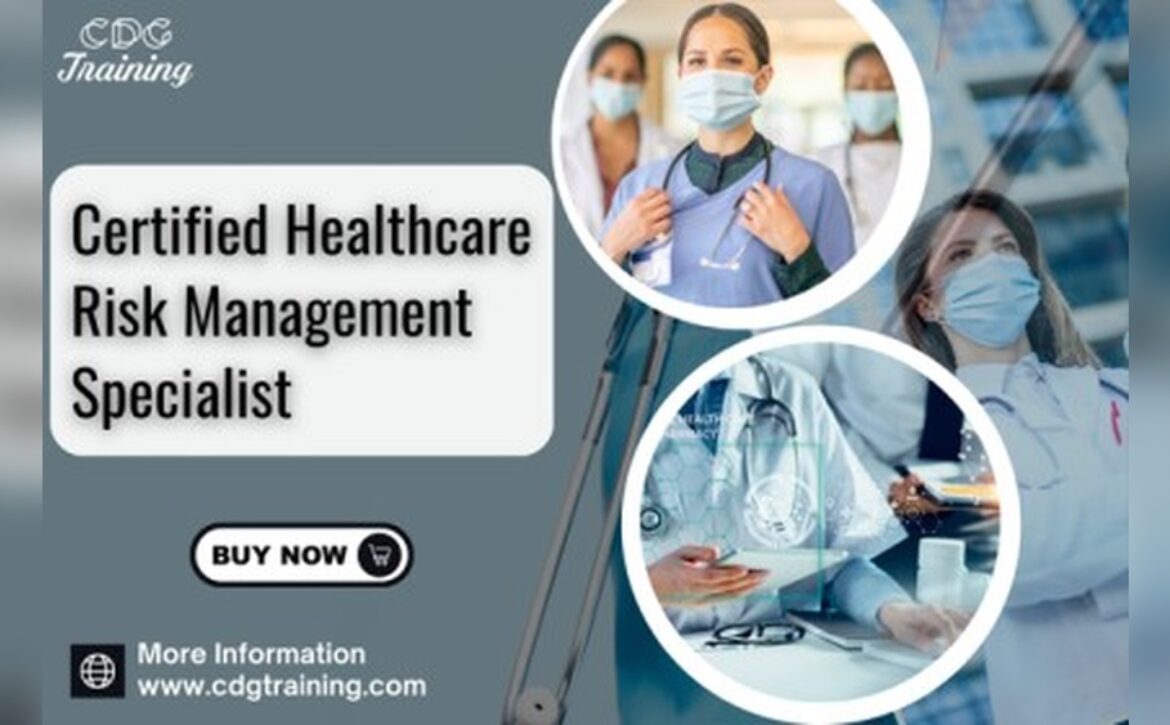
How to Become a Healthcare Management Training Expert
Are you looking to make a real impact in the healthcare industry? Imagine being the person who keeps hospitals running smoothly and ensures patients receive the best care possible.
That’s the power of healthcare management. But how do you step into this critical role? If you’re eager to combine your passion for healthcare with leadership skills, you’re in the right place. This guide will show you how to become a healthcare management expert and make a difference where it truly matters.
Ready to unlock your potential and shape the future of healthcare? Keep reading to discover the essential steps and insider tips that will set you on the path to success.
Essential Skills For Healthcare Management
Navigating healthcare management requires a blend of leadership, communication, and problem-solving skills. Training programs focus on developing effective strategies and understanding healthcare systems. Aspiring managers learn how to oversee operations, ensure patient care quality, and manage financial aspects efficiently.
In the fast-paced world of healthcare, having the right skills is crucial for effective management. Whether you’re eyeing a role as a healthcare manager or seeking to enhance your current abilities, honing certain skills can make all the difference. Let’s explore the essential skills that will set you on the path to success in healthcare management.
Leadership And Communication
Being a leader in healthcare goes beyond just making decisions. You need to inspire your team and communicate clearly. Imagine you’re leading a team through a hospital crisis—your ability to convey instructions effectively can mean the difference between chaos and calm. Communication isn’t just about talking; it’s about listening too. Engage your team by asking questions and valuing their input. When your team feels heard, they’re more likely to contribute positively and work collaboratively.
Financial Acumen
Understanding finances is crucial in healthcare management. You don’t need to be an accountant, but grasping basic financial principles is essential. Can you read a budget or analyze a financial report? If not, consider taking a course or attending workshops. Effective budget management can improve patient care. By allocating resources wisely, you ensure that the healthcare facility operates smoothly. It also helps in making informed decisions that align with the facility’s goals.
Regulatory Knowledge
Healthcare is a heavily regulated industry. Knowing the rules is not just necessary; it’s vital. Imagine implementing a new policy only to discover it violates a regulation—such mistakes can be costly and damaging. Stay updated with the latest regulations. Subscribe to industry newsletters or join professional groups. This proactive approach will keep you informed and compliant, reducing risks for your facility.
Technological Proficiency
In today’s digital age, technology is integral to healthcare management. Familiarity with healthcare software and electronic health records is indispensable. Could you efficiently navigate a new system if introduced tomorrow? Embrace technology as an ally, not an obstacle. Attend training sessions or webinars to stay ahead. By doing so, you enhance your efficiency and improve patient care, making technology work for you rather than against you. Developing these essential skills can significantly impact your career in healthcare management. Reflect on your current abilities and consider which areas need improvement. The journey to becoming an effective healthcare manager starts with you taking the first step.
Education And Certifications
Education and certifications are vital in healthcare management. They provide the foundational knowledge and skills required in this field. Understanding the right educational paths and certifications can enhance your career prospects. Let’s explore the key elements that will set you on the path to success.
Relevant Degrees
Degrees in healthcare management or administration are essential. A bachelor’s degree is often the starting point. Many pursue a Master of Healthcare Administration (MHA) for advanced roles. Business degrees with a healthcare focus can also be beneficial. Courses often include healthcare policy, ethics, and leadership. These programs build a strong foundation in management principles.
Professional Certifications
Professional certifications validate your skills and knowledge. The Certified Healthcare Manager (CHM) is popular. It demonstrates expertise in healthcare management. The Fellow of the American College of Healthcare Executives (FACHE) is another. It requires meeting education and experience criteria. Certifications show commitment and enhance your resume.
Continuing Education
Healthcare management is an ever-evolving field. Continuing education keeps professionals updated. Workshops and seminars offer insights into new trends. Online courses provide flexibility for busy schedules. Many organizations offer continuing education credits. Staying informed helps maintain a competitive edge.
Gaining Practical Experience
Embarking on a journey to become a healthcare management professional is as much about theoretical knowledge as it is about practical experience. While textbooks and lectures provide a solid foundation, the real learning happens when you roll up your sleeves and dive into the world of healthcare. Gaining practical experience will not only enhance your skills but also make you a strong candidate in this competitive field. Let’s explore some effective ways to gain this invaluable experience.
Internships And Residencies
Internships and residencies are golden opportunities to immerse yourself in the healthcare environment. They offer hands-on experience, allowing you to understand the daily operations and challenges faced in healthcare facilities. As an intern, you might assist in managing patient records or help organize community health programs. Residencies often provide a deeper dive, where you might work directly with healthcare managers, learning how decisions are made.
Imagine the insights you’ll gain by observing professionals handle real-world problems. Ask questions, participate actively, and absorb as much as you can. Consider internships and residencies as a stepping stone that shapes your future career.
Entry-level Positions
Starting in an entry-level position in healthcare management is a strategic move. These roles might include administrative assistant, patient coordinator, or office manager. While these positions may not sound glamorous, they are crucial for understanding the backbone of healthcare operations.
Picture yourself coordinating schedules, managing patient inquiries, and supporting the managerial staff. These tasks build your organizational skills and give you a taste of the inner workings of healthcare facilities. Entry-level positions are a practical way to kickstart your career while contributing to the team.
Mentorship Opportunities
Finding a mentor can be transformative in your career path. A mentor provides guidance, shares their experiences, and helps you navigate complex situations. Their seasoned perspective can be invaluable as you build your own strategies and goals.
Seek out professionals who inspire you and ask if they’re willing to mentor you. Attend networking events, join professional groups, and connect with potential mentors. With their support, you can avoid common pitfalls and accelerate your learning curve.
Are you ready to take the next step in your healthcare management journey? Practical experience is at your fingertips—grab it with both hands and watch your career flourish!
Building A Network
Building a network is crucial for healthcare management professionals. It opens doors to endless opportunities. Networking connects you with industry leaders. It helps you gain insights and share experiences. It is a stepping stone to career growth and collaboration. Discover how to build a network effectively in healthcare management training.
Industry Conferences
Industry conferences are a hub of knowledge. They bring together experts and newcomers alike. Attend these events to meet influential figures. Engage in discussions to broaden your understanding. Participate in workshops to enhance your skills. Networking here can lead to valuable partnerships.
Professional Associations
Joining professional associations can boost your career. These groups provide resources and support. They offer access to exclusive events and seminars. Connect with peers who share your interests. Associations often have mentorship programs. These can be vital for personal and professional development.
Social Media And Online Communities
Social media is a powerful networking tool. Platforms like LinkedIn connect you with industry professionals. Share your thoughts and engage with posts. Join online communities dedicated to healthcare management. Participate in discussions and ask questions. Online networking can lead to collaborations and job offers.
Developing Training Programs
Developing training programs in healthcare management is a crucial step towards ensuring that healthcare professionals are equipped with the necessary skills to lead and manage effectively. Whether you’re just starting or looking to enhance existing programs, it’s important to tailor the training to meet the specific needs of your healthcare setting. This process involves identifying training needs, creating engaging content, and utilizing modern training tools.
Identifying Training Needs
Understanding what your team needs is the first step in developing an effective training program. Are there gaps in knowledge or skills that need addressing? Conduct surveys or interviews with staff to gather their input. This direct feedback can guide you in prioritizing areas that require attention.
Look at current trends and challenges within the healthcare industry. Are new technologies being introduced that require additional training? Staying updated with industry standards ensures your program remains relevant. You’ll also be preparing your team for future challenges.
Creating Engaging Content
Content is king, but it has to be engaging to make an impact. Use real-world examples to illustrate concepts and practices. People learn better when they see how theories apply in real scenarios. Share stories from experienced managers; their successes and failures can be powerful learning tools.
Incorporate interactive elements like quizzes or case studies. These keep participants actively involved and encourage critical thinking. Consider inviting guest speakers who can offer different perspectives and insights. Their expertise can enrich your program and spark lively discussions.
Utilizing Modern Training Tools
The tools you use can significantly affect the effectiveness of your training program. Are you leveraging technology to its fullest potential? Online platforms, webinars, and virtual reality can make learning more accessible and engaging. They offer flexibility for participants to learn at their own pace.
Consider using mobile apps for quick reference and continuous learning. They can serve as handy resources for staff to access information anytime, anywhere. Also, analytics tools can track progress and provide valuable insights into training effectiveness.
Ask yourself, are you ready to embrace new tools to enhance your training programs? The right tools can transform how your team learns, making the process more efficient and impactful.
Measuring Success And Impact
Measuring success in healthcare management training is crucial. It ensures you’re on the right path and making a difference. It’s more than just numbers; it’s about the real-world impact you create.
Reflect on this: How do you know your efforts are paying off? Is there a tangible improvement in healthcare delivery because of your training?
Let’s dive into practical ways to gauge your success.
Feedback And Evaluation
Gather feedback from participants regularly. It helps you understand their experiences and challenges.
Consider conducting surveys or interviews. Ask specific questions like, “What skills have you applied from the training?”
Feedback gives you a direct insight into your training’s effectiveness. It shows you areas of strength and where you need improvement.
Performance Metrics
Tracking performance metrics is vital. Define clear, measurable goals before the training starts.
Use metrics like participant engagement and knowledge retention rates. Track improvements in healthcare facilities managed by your trainees.
Performance metrics provide a snapshot of your training’s impact. They help you understand how well your training translates into practical outcomes.
Continuous Improvement
Continuous improvement is key in healthcare management training. Use feedback and metrics to refine your approach.
Regularly update your training materials. Incorporate new findings and techniques that enhance learning.
Engage with industry professionals and stay updated. This ensures your training remains relevant and impactful.
Remember, the goal is not just to train but to inspire better healthcare management practices. Are your trainees leading positive changes in their workplaces?
Your success is measured by the ripple effect your training creates in the healthcare system. How will you ensure your training leaves a lasting impact?
Frequently Asked Questions
What Is Healthcare Management Training?
Healthcare management training equips individuals with skills to manage healthcare facilities. It covers areas like leadership, finance, and healthcare policies. This training is essential for those aiming to enhance healthcare service delivery. Participants learn to optimize operations, improve patient care, and ensure compliance with healthcare regulations.
Why Pursue A Career In Healthcare Management?
A career in healthcare management offers rewarding opportunities to impact healthcare systems. Professionals can lead hospital teams, improve patient outcomes, and streamline operations. It’s a field with growing demand due to healthcare industry expansions. Pursuing this career can lead to leadership roles and substantial personal fulfillment.
How Long Is Healthcare Management Training?
Healthcare management training duration varies based on the program type. Certificate programs can be completed in a few months. Bachelor’s degrees typically require four years, while master’s programs may take two years. The choice depends on career goals and time commitment.
What Skills Are Gained In Healthcare Management?
Participants gain skills in leadership, strategic planning, and financial management. They learn to analyze healthcare policies and improve patient care. Communication and problem-solving skills are also enhanced. These skills are crucial for effective healthcare facility management and ensuring high-quality patient services.
Conclusion
Becoming a healthcare management trainer opens many career opportunities. Focus on gaining relevant education and experience. Network with professionals in the field. Stay updated with industry trends and changes. Seek certifications to enhance your skills. Practice effective communication and leadership.
These steps will guide you on your journey. Remember, persistence is key. Keep learning and growing in your role. A rewarding career in healthcare management awaits.





